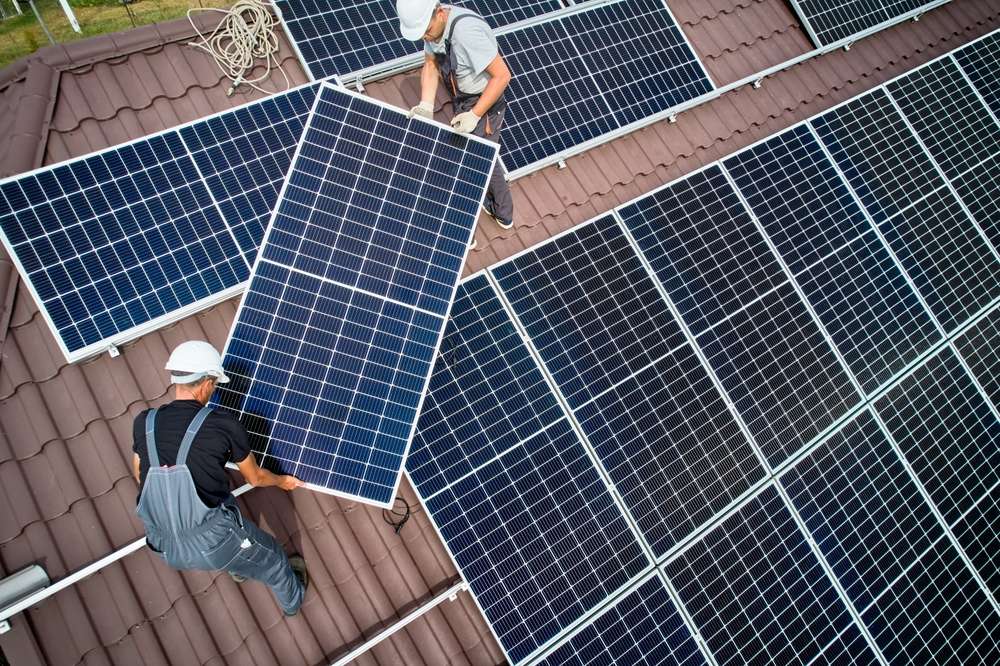Solar Energy as a Cost-Effective Solution for Long-Term Savings
Tired of watching your electricity bills slowly climb each month? Switching to clean, renewable solar energy could be a great way to ease the pressure. By installing solar panels, you can take more control of your home’s energy use, reduce long-term costs, and make a positive impact on the environment — all while enjoying the benefits of a more sustainable lifestyle.

What are the primary benefits of solar PV systems for residential use?
Solar photovoltaic (PV) systems offer numerous advantages for homeowners. First and foremost, they provide a reliable source of clean energy, reducing your carbon footprint and dependence on fossil fuels. Solar PV systems also offer long-term financial benefits by significantly lowering or eliminating your electricity bills. Additionally, these systems require minimal maintenance, have a long lifespan (typically 25-30 years), and can increase your property value. Many governments and utility companies also offer incentives and rebates for installing solar panels, making the initial investment more affordable.
How do home solar panel installations lead to energy savings?
Installing solar panels on your home can lead to substantial energy savings over time. Once your system is up and running, you’ll start generating your own electricity, reducing your reliance on the grid. During peak sunlight hours, your panels may produce more energy than you consume, allowing you to sell excess power back to the grid through net metering programs. This can result in credits on your utility bill or even a negative balance, effectively eliminating your electricity costs. Over the lifespan of your solar system, these savings can add up to tens of thousands of dollars, making it a smart long-term investment.
What should you consider when selling a house with a rented roof for solar panels?
If you’re planning to sell a house with a rented roof for solar panels, there are several factors to consider. First, you’ll need to disclose the solar lease agreement to potential buyers, as they’ll be taking over the contract. This can be both a selling point and a potential hurdle, depending on the terms of the lease and the buyer’s preferences. Some buyers may be attracted to the idea of lower energy costs, while others might be hesitant to take on a long-term commitment. It’s essential to review the lease agreement carefully and consider options for transferring or buying out the lease before listing your property. Working with a real estate agent experienced in solar leases can help navigate this process smoothly.
How do alternative power solutions compare to solar energy companies?
While solar energy is a popular choice for alternative power, it’s worth comparing it to other options. Wind turbines, for example, can be effective in areas with consistent wind patterns but may not be suitable for urban or suburban settings. Geothermal systems offer efficient heating and cooling but require significant upfront costs and are not available everywhere. Biomass energy can be a good option for rural areas but may not be practical for most residential settings. Solar energy stands out for its widespread applicability, relatively straightforward installation process, and proven track record of long-term savings. However, the best solution may vary depending on your location, energy needs, and local incentives.
What unique factors should you consider for solar roof installations in your area?
When considering solar roof installations, it’s crucial to take into account several location-specific factors. Climate plays a significant role, as areas with more sunny days will naturally yield higher energy production. Local building codes and zoning laws may impact the placement and size of your solar array. Additionally, the orientation and pitch of your roof, as well as any shading from nearby structures or trees, will affect the system’s efficiency. It’s also important to research local solar incentives, as these can vary widely between states and even municipalities. Consulting with local solar energy companies can provide valuable insights into these factors and help you design an optimal system for your specific location.
How do solar roof installations impact long-term property value?
Solar roof installations can have a positive impact on long-term property value, making them an attractive investment beyond just energy savings. Studies have shown that homes with solar panels tend to sell faster and at a premium compared to similar homes without solar systems. The exact increase in value can vary depending on factors such as the size of the system, local electricity rates, and the housing market. However, it’s important to note that owned solar systems typically add more value than leased systems. Potential buyers often view solar installations as a valuable upgrade that offers long-term cost savings and environmental benefits.
| Solar System Provider | Services Offered | Key Features/Benefits |
|---|---|---|
| SunPower | Residential and commercial solar installations | High-efficiency panels, comprehensive warranty |
| Tesla Solar | Solar panels and Solar Roof | Sleek design, integrated energy storage options |
| Sunrun | Solar panel installation and leasing | Flexible financing options, virtual consultations |
| Vivint Solar | Residential solar systems | Custom system design, energy monitoring app |
| LG Solar | Solar panel manufacturing and distribution | High-quality panels, robust performance guarantees |
In conclusion, solar energy presents a compelling case as a cost-effective solution for long-term savings. From reducing or eliminating electricity bills to increasing property value, the benefits of solar PV systems extend far beyond just environmental considerations. While the initial investment may seem significant, the long-term financial gains, coupled with government incentives and technological advancements, make solar an increasingly attractive option for homeowners looking to secure their energy future and reduce their carbon footprint.




